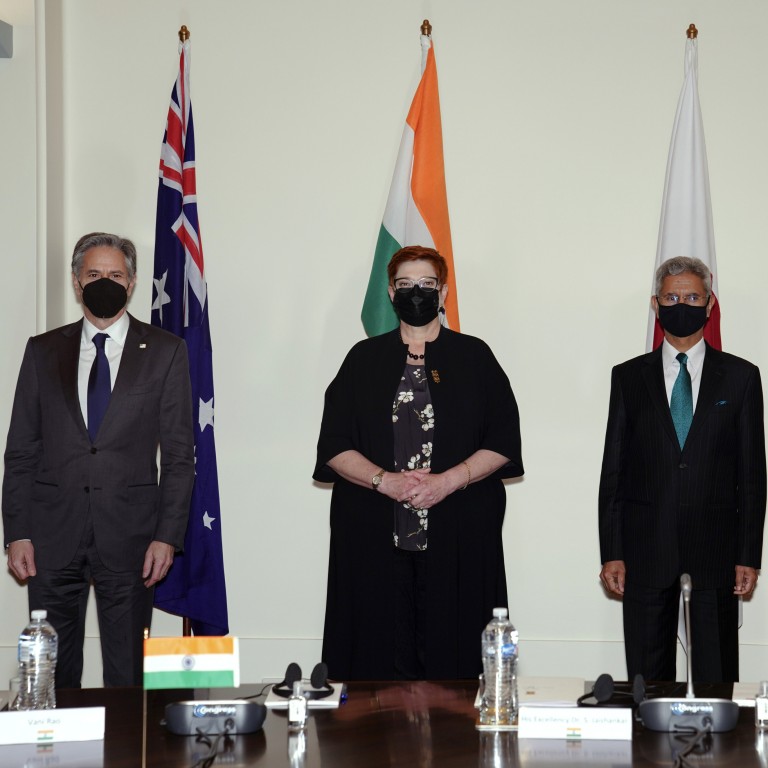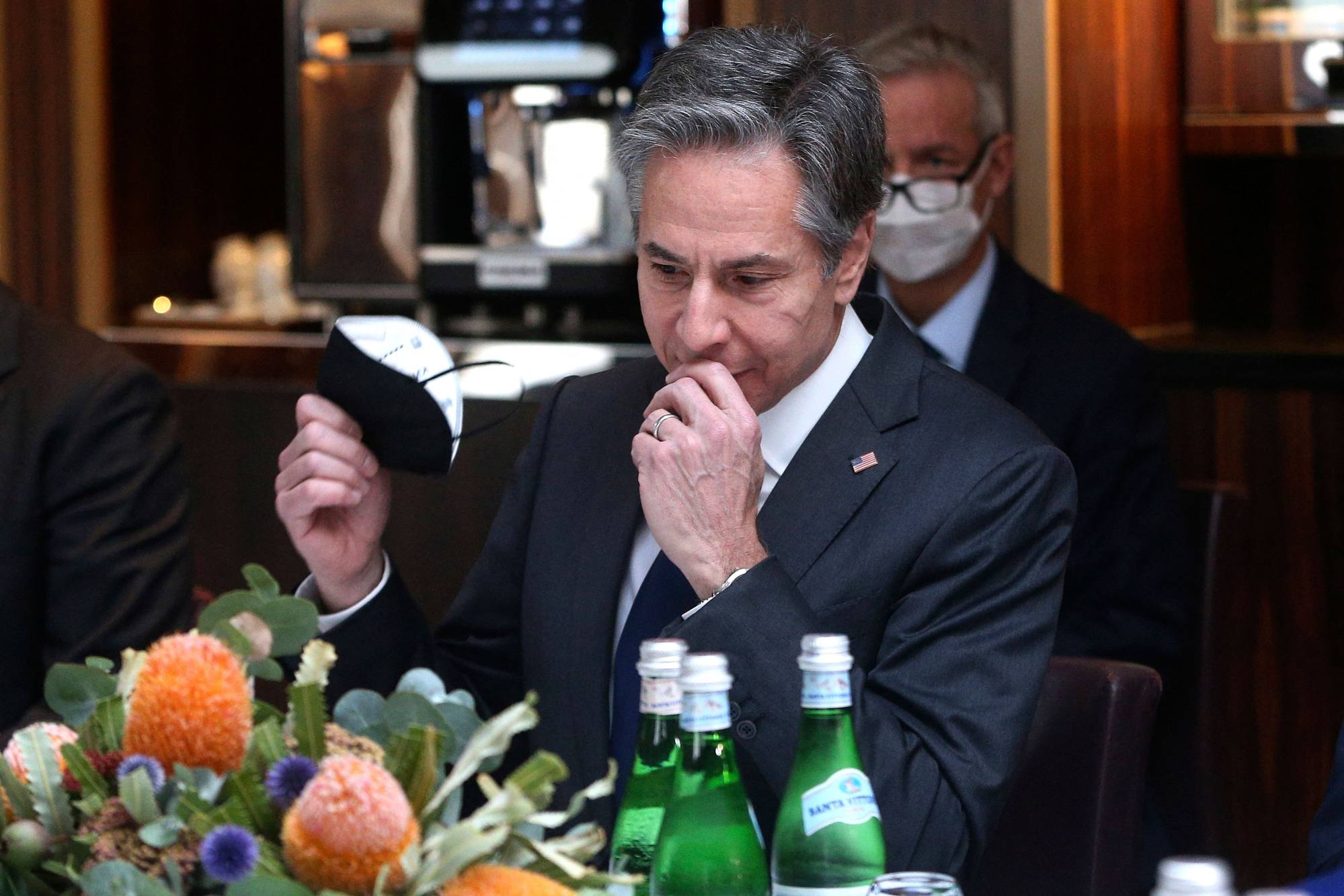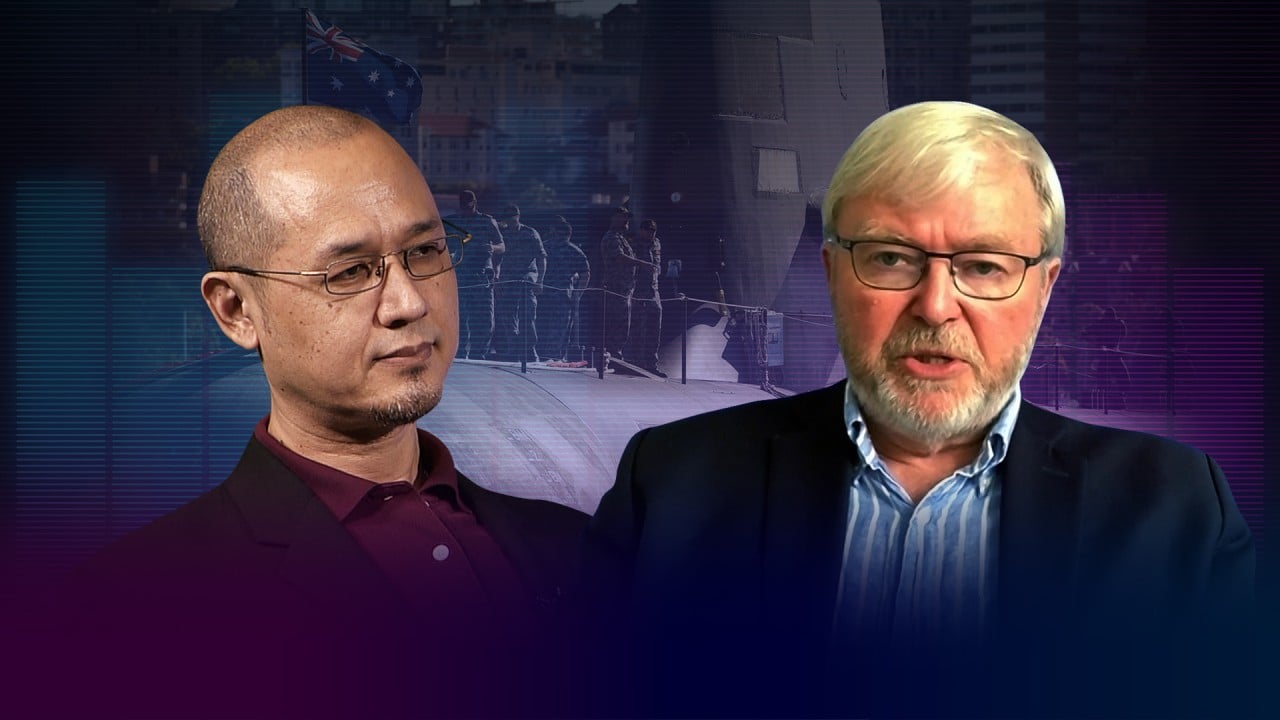
Blinken tells Quad partners confrontation with China ‘not inevitable’
- The US Secretary of State and his counterparts from Australia, Japan and India pledged to cooperate in the Indo-Pacific and work on Covid-19 and climate change
- Washington also announced that it will host the 2023 Apec meeting to ‘advance fair trade and open investments in the region’
Confrontation with Beijing is not inevitable, but the United States must stand up with its allies for a rules-based system threatened by Chinese aggression, Secretary of State Antony Blinken said on Friday.
Asked by a reporter if a confrontation with China in the Indo-Pacific was inevitable, Blinken replied: “Nothing is inevitable.”
“I think we share concerns that in recent years China has been acting more aggressively at home and more aggressively in the region and indeed potentially beyond,” Blinken said.
Tough, but no wolf: can China’s new envoy to Australia make a difference?
The Quad partners are united by an “affirmative vision for what the future can bring” and a “commitment to defend the rules-based system that we have spent tremendous time and effort building,” he added.
Blinken’s trip is designed to reinforce America’s interests in Asia and its intent to push back against increasing Chinese assertiveness in the region. He will also visit Fiji and discuss pressing concerns about North Korea with his Japanese and South Korean counterparts in Hawaii.
The Chinese Foreign Ministry this week accused the US of using the Quad to force other countries to accept the standards of American democracy.
Australian Prime Minister Scott Morrison said he felt reassured by the shared commitment against coercion after meetings with Blinken, Indian External Affairs Minister Subrahmanyam Jaishankar and Japanese Foreign Minister Yoshimasa Hayashi.
“The things we discussed today are principally how we will continue to always stand up for our values … which is what unites us most,” Morrison said.
“In doing so, we stand up to those who would seek to coerce us. And as I understand from our Quad partners, none of you understand better than we do. And that is a great comfort to us that the coercion and the pressure that Australia has been placed on, we greatly appreciate your support,” he added.
Australia’s ex-PM Keating calls UK’s Liz Truss’ China comments ‘demented’
Australian Defence Minister Peter Dutton told Parliament on Thursday that Canberra was facing the “most complex and potentially catastrophic regional security environment” since World War II.

“It is a top priority for the Biden-Harris administration to serve as a strong, reliable partner to Apec economies and identify common ways to unleash economic opportunity, prosperity, and growth for us all,” she wrote.
Apec host New Zealand held last year’s gathering entirely online due to the Covid-19 pandemic.
Thailand is expected to organise Apec this year, while Peru hosts in 2024, the White House statement said.
Additional reporting by Reuters


